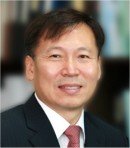|
Plenary
Lecture
Boiling Heat Transfer Enhancement Using Nano and Micro
Technology

Professor HyungHee Cho
School of Mechanical Engineering
Yonsei University, Seoul, Korea
E-mail:
hhcho@yonsei.ac.kr
Abstract: A lot of the previous studies on boiling
heat transfer have been reported since 1950s. They have
investigated the typical researches on the theoretical
analyses and the experimental approaches on the
prediction and the evaluation of boiling phenomena.
Since 1990s, according to the wide spreading of MEMS
technology, surface manipulation technique has been
widely applied to enhance boiling heat transfer
performance. Based on the application of MEMS
fabrication technology, it could be also feasible to
manipulate surface chemical properties resulting in
surface wettability control. Moreover, the previous
approaches based on microscale surface treatment have
been advanced into the application of nanotechnology,
which deals with more minute surface morphology. As
nanotechnology became to be widely used in industrial
fields and academic researches, nanoscale surface
treatments even on boiling heat transfer has been
identified based on various experimental approaches. In
this lecture, the micro-nanoscale surface manipulation
techniquesfor the enhancement of boiling heat transfer
performance are summarized. First, surface manipulation
via silicon nanowire arrays (SiNWs) is conducted as an
effective method to increase surface roughness extremely
and create natively formed vapor bubble seeds, which are
favorable to boiling heat transfer, with microscale
dimensions by coalescence of SiNWs. Second, the
enhancement of boiling performance is verified using
micro-nano hybrid structure fabrication. In details,
multiscale structure, which consists of SiNWs and
microscale patterns, is introduced accompanying wicking
phenomena by nanoscale structure and surface area
increase and bubble seeds formation by microscale
structure. Then pool boiling performance is
experimentally verified in terms of the geometric
parameters related to the designing of multiscale
structures. Finally, it is demonstrated that the
application of optimal multiscale structure considering
the boiling characteristics can enhance boiling
performance compared with results on a bare surface and
previously reported onesvia artificial structures.
Brief Biography of the Speaker:
HyungHee Cho received the B.S. and M.S. degrees in
mechanical engineering from Seoul National University,
Seoul, Korea, in 1982 and 1985, respectively, and Ph.D.
degree in mechanical engineering from University of
Minnesota, Minneapolis, MN in 1992. From 1992 to 1995,
he was research associate in University of Minnesota. In
1994, he joined Minnesota Supercomputer Institute as a
research associate. In 1995, he joined the Department of
Mechanical Engineering, Yonsei University, Seoul, Korea,
where he is currently a full professor in the School of
Mechanical Engineering. From 2003 to 2005, he was the
Chairman of Department of Mechanical Engineering at
Yonsei University. From 2005 to 2007, he held position
as the Associate Dean of College of Engineering at
Yonsei University. He is currently the director of The
Low Observable Technology Research Center.
His research interests include heat transfer and flow
control/designin macro-scale devices as well as
micro/nano-scale components.For macro-scale devices, he
has been working on heat transfer in turbomachineries,
rockets/ramjets and nuclear reactors. Especially, with
intensive research on various cooling techniques such as
film cooling, internal passage cooling, and
impingement/effusion cooling, he has accomplished major
research achievements including numerous papers and
patents. For nuclear reactors, he has been working on
flow-induced vibration and boiling heat transfer
enhancement by controlling flow characteristics and heat
transfer.For micro/nano-scale components, he has worked
on thermal transport phenomena in low dimensional
materials as well as thermal management in electronics
and semiconductor devices. Recently, he has been working
on boiling heat transfer enhancement using nano and
micro technology.
He is a recipient of numerous awards such as KSME
Scientific Achievement Award (2000), Yonsei Academic
Achievement Award (2001), KSFTS best paper award (2006)
and KFMA Scientific Achievement Award (2008). Dr. Cho is
a Fellow of the American Society of Mechanical
Engineers, a Scientific Council Member of the
International Centre for Heat and Mass Transfer (ICHMT),
and an Associate Member of the Korea Academy of Science
and Technology (KMST). He is also a committee member of
ASME K-14 (Heat Transfer in Gas Turbine) Committee and
vice president of KSME Energy and Power Division. He
serves on the editorial board of JP Journal of Heat and
Mass Transfer, Advances in Mechanical Engineering, and
International Journal of Fluid Machinery and Systems.
|
